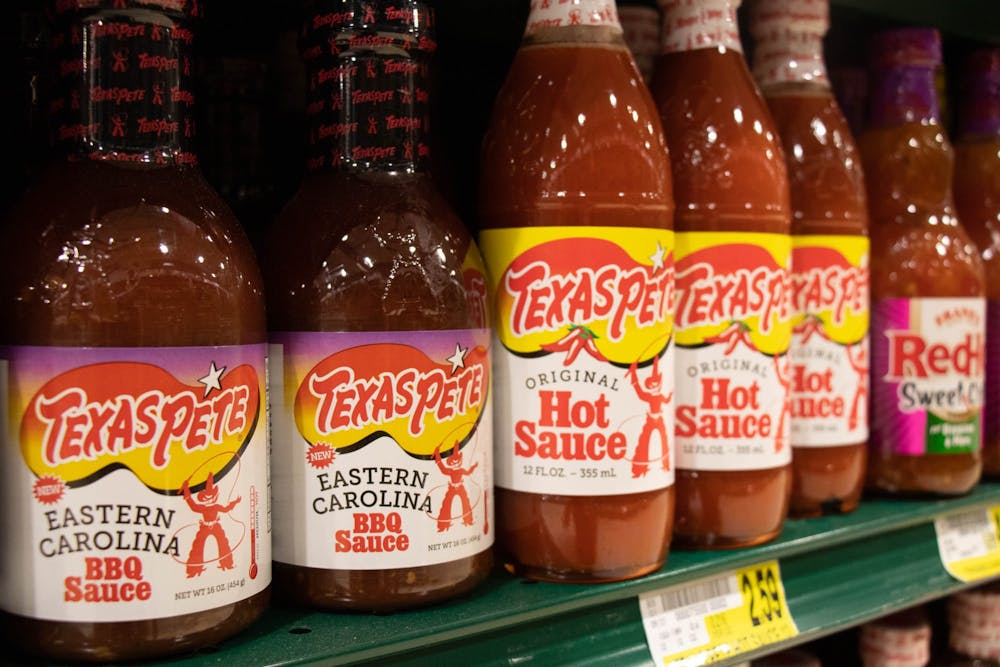Texas Pete hot sauce is under fire.
A man is suing T.W. Garner Food Co., which produces food items like Texas Pete hot sauce, over misleading advertising.
The class-action lawsuit filed by California resident Phillip White alleges the hot sauce bottle’s branding is deceptive and leads consumers to believe the product is from Texas, when the product is actually made in Winston-Salem, N.C.
The branding led White to purchase a $3 Texas Pete hot sauce bottle in 2021, according to the suit. The suit also states White would not have bought the hot sauce if he had known it was not authentic Texan hot sauce.
The bottle features a cartoon of a cowboy and includes a white lone star — a part of the Texas state flag — which the lawsuit states as part of the evidence of false advertising.
Clarkson Law Firm is defending White’s in the lawsuit. Ryan Clarkson, one of the attorneys representing White, said in a statement via text message that the origin of products is integral to consumer purchase decisions.
“Companies who wish to profit therefrom must be truthful about their provenance,” he said.
Kyle Daniels, a first-year economics and environmental studies major at UNC, said the imagery of Texas Pete is associated with Texas. He said he could understand why consumers like White may have been confused.
“If they have a name of the state on the bottle, you kind of assume that’s from that state,” Daniels said. “That’s a very fair assumption, so I would have no clue that it’s from North Carolina.”



